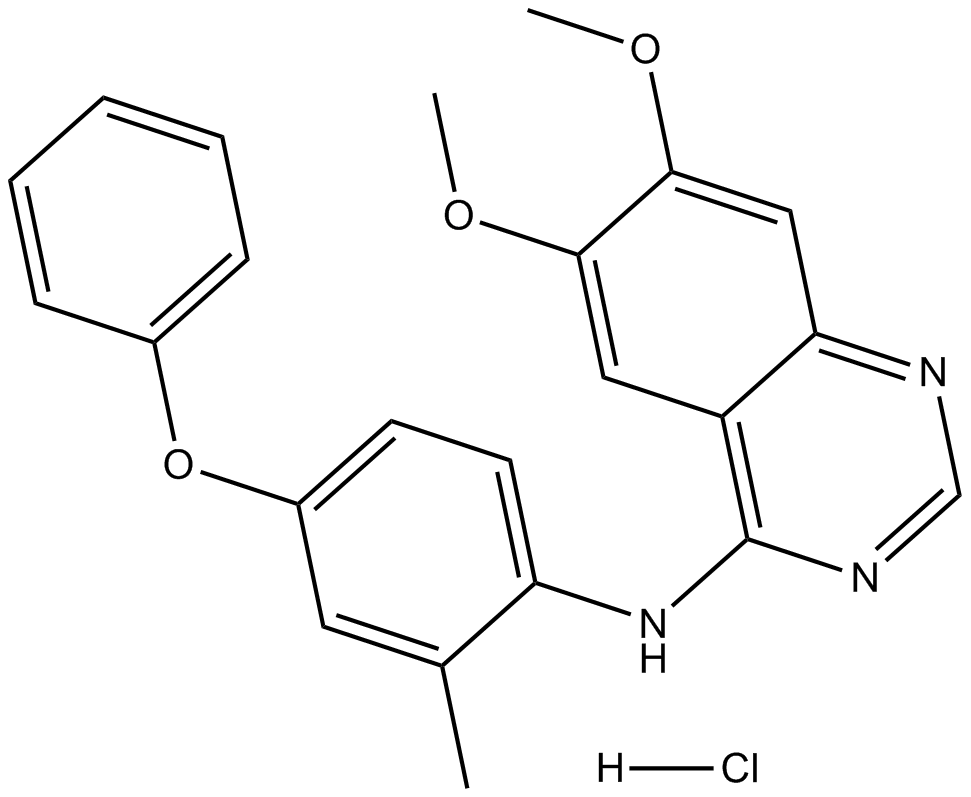APS-2-79 |
| Catalog No.GC15240 |
APS-2-79 est un antagoniste de MEK dépendant de KSR. APS-2-79 inhibe la liaison de l'ATPbiotine À KSR2 dans le complexe KSR2-MEK1 avec une IC50 de 120 nM. APS-2-79 rend la stabilisation de l'état inactif de KSR antagonise la signalisation Ras-MAPK oncogène.
Products are for research use only. Not for human use. We do not sell to patients.

Cas No.: 2002381-31-7
Sample solution is provided at 25 µL, 10mM.
IC50: 120 nM
APS-2-79 is a KSR-dependent MAPK modulator.
Kinase suppressor of Ras (KSR), a MAPK scaffold, is subject to allosteric regulation via dimerization with RAF. Targeting of KSR has important therapeutic implications for cancer, however, testing this hypothesis is difficult due to the lack of small-molecule KSR antagonists.
In vitro: APS-2-79 was found to be able to suppress KSR-stimulated MEK and ERK phosphorylation. This MAPK signalling suppression caused by APS-2-79 was dependent on direct targeting of KSR as an active site mutant, which had been demonstrated to stimulate KSR-based MAPK outputs independent of ATP-binding, which could significantly diminish the activity of APS-2-79. Moreover, the KSR-stimulated MEK phosphorylation caused by RAF was reduced by the addition of APS-2-79 markedly. In addition, APS-2-79 was no effetive when KSR was absent or when the KSR2(A690F) mutant was used for in vitro assays, indicating that the activity of APS-2-79 was from direct targeting of KSR. However, APS-2-79 was found to lack direct activity against the highly homologous active RAF family kinases, such as recombinant BRAF and CRAF, or cellular BRAF(V600E) [1].
In vivo: So far, there is no animal in vivo data reported.
Clinical trial: Up to now, APS-2-79 is still in the preclinical development stage.
Reference:
[1] Dhawan NS, Scopton AP, Dar AC. Small molecule stabilization of the KSR inactive state antagonizes oncogenic Ras signalling. Nature. 2016 Sep 1;537(7618):112-116.
Average Rating: 5 (Based on Reviews and 8 reference(s) in Google Scholar.)
GLPBIO products are for RESEARCH USE ONLY. Please make sure your review or question is research based.
Required fields are marked with *




















